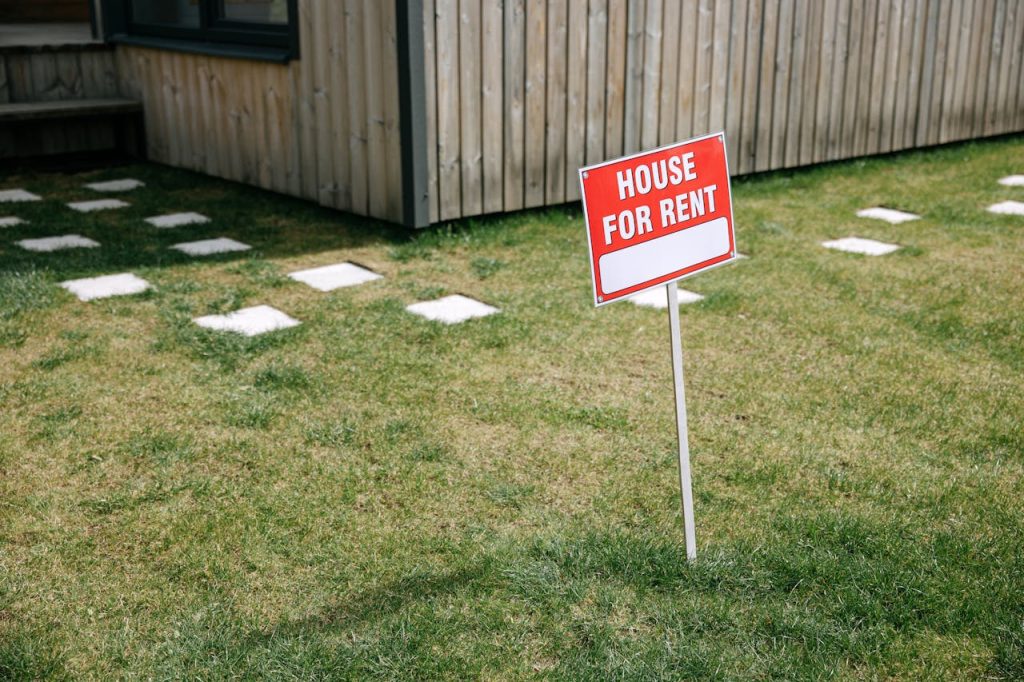Are you pondering whether to sell your house for a quick profit or turn it into a steady stream of rental income? It’s a decision that stretches beyond the black-and-white of market trends, tapping deeply into your personal and financial situations. Let’s peel back the layers of this major life decision, examining the critical personal and market factors that could sway your choice. We’ll explore these options together, ensuring your big decision aligns perfectly with your larger life plans. Ready to get started?

Assessing Your Financial Situation
When you’re stuck at the “sell or rent” crossroads, your financial footing comes into play. Here’s how to tackle this without needing to pull out a calculator (or maybe just a small one):
• Evaluating Home Equity: Your home equity is like a financial superhero, whether you’re selling or using it for future investments. It’s the part of your property you truly own and can be a powerful asset.
• Understanding Mortgage Rates: Mortgage rates are the financial weather—constantly shifting and influencing whether selling or renting is more attractive. Lower rates might favor renting, while higher rates could push you to sell.
• Analyzing Financial Stability and Future Goals: Consider your long-term plans, whether it’s a peaceful retirement or funding education. Your financial stability and goals should guide whether you sell now or hold onto the property for rental income.
Real Estate Market Trends
Understanding current market conditions is crucial when deciding whether to sell or rent your home. A seller’s market, where demand outpaces supply, might push you toward selling to maximize your profit. On the other hand, if the market cools, renting could provide a steady income while waiting for better selling conditions.
Factors influencing Home Value Appreciation
1. Local Economic Growth: Areas with growing employment opportunities tend to attract more residents, thereby pushing up home values.
2. Infrastructure Improvements: The introduction of new schools, parks, and transit options can make a neighborhood more attractive, boosting property prices.
3. Market Sentiment: Sometimes, it’s the overall economic outlook or the real estate market’s health that can lift or dampen property values.
4. Property Features: According to the National Association of Realtors, homeowners should not underestimate the impact of features like a well-maintained garage when preparing to sell their home. Such features can enhance a property’s appeal, potentially making it more attractive to buyers and improving its marketability.
Navigating these trends with a sharp eye can help you decide the best time to sell or the wisdom in renting, ensuring your decision aligns with not just market conditions but your personal and financial goals.
Rental Income Potential
Thinking about renting out your home? Estimating rental income goes beyond just setting a price; it’s about comparing what you could earn monthly to the lump sum from selling. It’s the choice between a steady income stream or a quick payout.
To get a clear picture, assess local rental demand. Is your area popular with renters? Proximity to universities, hospitals, or businesses can significantly boost your prospects. If demand is strong, renting might offer better long-term returns than selling. Consider these factors to ensure your property generates a steady income that aligns with your financial goals.
Tax Implications
Understanding the tax implications when selling or renting your property is crucial. When you sell, capital gains tax applies to the profit you make—the difference between the purchase price and the selling price, minus eligible expenses like renovations.
For those considering renting out their property, there are significant tax benefits:
• Property Management Deductions: You can deduct expenses related to hiring property management services, which can lower your overall tax liability.
• Maintenance Deductions: Costs incurred from maintaining and repairing the property to keep it tenant-ready are also deductible, reducing your taxable income.
Property Management Considerations
Being a landlord goes beyond just collecting rent—it’s about handling a range of responsibilities, from repairs to tenant relations. This role can feel like running a small business, with the added pressure of legal and logistical challenges.
The costs of property management can vary, including unexpected repairs and potential legal fees. If managing these tasks yourself seems overwhelming, hiring a property manager is an option, though it adds to your expenses. Weighing these factors can help you determine if being a landlord aligns with your lifestyle and financial goals.
Long-Term Investment Potential
Understanding home value appreciation is crucial for long-term real estate investment. Properties often increase in value over time due to factors like market demand and neighborhood growth. Holding onto your property can offer both rental income and appreciation, leading to a substantial payoff when you eventually sell.
However, selling now might be the better option if you need immediate liquidity or want to take advantage of favorable market conditions. This allows you to capitalize on high values and reinvest in opportunities with potentially higher returns. Carefully weighing these options ensures your decision aligns with your financial goals and maximizes your investment.

Pros and Cons of Selling
Deciding to sell your property can bring a wave of immediate benefits, especially in a booming market. Here’s a quick look at why selling might just be the smart move:
Pros
• Immediate Cash Flow: Selling your property can provide a significant lump sum of cash, offering financial flexibility and the ability to invest in new opportunities.
• Avoiding Landlord Responsibilities: Say goodbye to the hassles of managing tenants, from late-night repair calls to ongoing maintenance issues.
• Capitalizing on High Market Value: If the market is hot, selling now lets you take advantage of peak prices, maximizing your investment return without the uncertainty of future market fluctuations.
Cons
• Potential Loss of Future Appreciation: While selling provides immediate gain, you might miss out on potential increases in property value down the line.
• Capital Gains Tax: Selling might come with capital gains tax implications, depending on the profit and how long you’ve owned the home.
While there are some downsides, the advantages of selling—especially the immediate financial gains and freedom from landlord duties—often outweigh the potential cons for many homeowners. If you’re looking to capitalize on current market conditions and ease your personal and financial burdens, selling could be your best bet.
Pros and Cons of Renting
Choosing to rent out your property can seem like a wise financial strategy at first glance, offering several perks but also carrying its own set of challenges. Here’s what you need to consider:
Pros
• Ongoing Rental Income: Renting provides a steady stream of income, which can be a reliable financial buffer.
• Tax Benefits: You can benefit from deductions for property management, maintenance costs, and depreciation.
• Property Appreciation: Over time, your property might increase in value, offering the potential for a substantial future sale price.
Cons
• Property Management Responsibilities: Managing a rental can be akin to running a full-time business, requiring continuous oversight and problem-solving.
• Risks of Tenant Issues: Tenant relationships can be fraught with challenges, from late payments to legal disputes over property use.
• Maintenance Costs: The financial burden of unexpected repairs and ongoing maintenance can quickly add up, eating into your rental income.
• Market Fluctuations: Rental demand can wax and wane, impacting your ability to consistently rent the property and maintain your income stream.
While the benefits of rental income and potential property appreciation are appealing, the responsibilities and risks associated with being a landlord can be significant. These drawbacks often sway property owners towards selling, especially when considering the effort involved in managing a rental property effectively.
Making the Decision
Deciding whether to sell or rent your house comes down to a few key considerations:
• Financial Impact: Assess your financial situation and how each option—selling or renting—fits into your short- and long-term goals.
• Market Trends: Consider the current market conditions. Is it a seller’s market, or does renting offer better returns right now?
• Lifestyle Preferences: Think about your plans and lifestyle. Do you want the simplicity of selling, or are you ready to manage a rental property?
• Investment Potential: Weigh the potential for property appreciation against the immediate benefits of selling.
Ultimately, your decision should align with your financial goals and what feels right for your life, balancing current needs with future possibilities.
Conclusion
Deciding whether to sell or rent your home involves weighing various factors, from financial goals and market conditions to personal lifestyle preferences. Selling offers immediate cash flow and freedom from property management while renting provides ongoing income and the potential for property appreciation.
Given the complexity of this decision, it’s wise to seek professional advice tailored to your unique situation. The experts at Doctor Homes can help guide you through your options, ensuring you make the best choice for your financial future and peace of mind.
FAQs about Should I Sell or Rent My House
What factors should I consider when deciding to sell or rent my house?
Assess your financial stability, market conditions, and personal goals. These factors will guide your decision. Choose what aligns best with your long-term plans.
How do mortgage rates affect my decision to sell or rent?
Higher mortgage rates might push you to sell to avoid escalating costs, while lower rates make renting out more financially feasible due to cheaper borrowing costs.
How can I determine if the current market is favorable for selling my house?
Assess home value trends, market demand, and economic indicators in your area. A consultation with Doctor Homes can offer a tailored analysis, considering both local and broader economic factors.
What are the financial implications of renting versus selling my home?
Renting offers steady income and tax benefits but requires ongoing management. Selling provides quick cash but may trigger capital gains tax. Consider both the immediate and future financial impacts.
How does my long-term plan impact the decision to sell or rent my house?
Align the decision with your future financial needs and lifestyle preferences. Selling might suit immediate financial needs; renting could better serve long-term financial growth. Evaluate which option best supports your goals.

